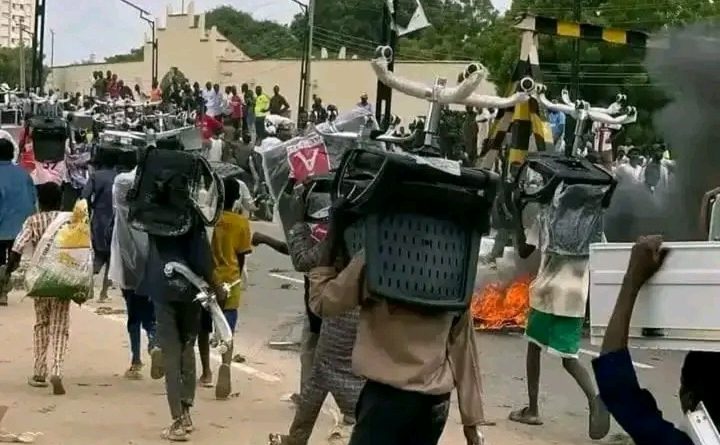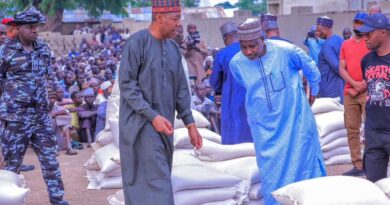Protest: Northern Youths Urge States, LGAs, To Review Economic Policies, Palliatives Distribution Structures
By Bukar BOLORI
The Northern Christian Youth Professionals have commended President Tinubu’s administration for the substantial revenue savings achieved since the removal of the fuel subsidy, advising the states, local government areas to review economic policies and palliatives distribution structures.
In a statement signed by the association Chairman, Isaac Abrak said: “The redirection of these funds towards enhancing the living conditions of Nigerians, particularly the less privileged, is a testament to the President’s genuine intention to end the misappropriation of trillions of naira by a select few oil cabals under the guise of paying oil subsidies.”
Abrak said: “However, the recent national protest tagged #EndBadGovernance has highlighted that despite these efforts, state and local governments have not yet efficiently utilized these funds to improve the lives of Nigerians, especially the very poor. This reality calls for state governors and local government chairmen to urgently review the mechanisms they use to administer these funds and distribute palliatives.
“Interestingly, this protest has revealed youth and community leaders who can be integrated into these structures to ensure that the impact of these funds and other forms of palliatives, such as food commodities, reaches those who need it the most.”
He added that: “Last month- July, while protesters were organizing, the Federation Account Allocation Committee (FAAC) disbursed N1.354 trillion, with states receiving N461.979 billion and local governments receiving N337.019 billion. Between January and May this year, a total of N10.13 trillion was shared among federal, state, and local governments, marking a 179% increase compared to the same period in 2023. The breakdown of these disbursements includes N1.88 trillion for the Federal Government, N2.05 trillion for State Governments, and N1.41 trillion for Local Governments.
“To ensure food reaches the tables of ordinary Nigerians, President Tinubu dispatched 20 trucks of rice to each of the 36 states and the Federal Capital Territory, with each truck containing approximately 1,200 bags of 25kg of rice. Additionally, the administration released 102,000 metric tons of grains, including maize, millet, and garri, from the National Food Reserve. This distribution aims to alleviate the food crisis and high commodity prices. Despite these efforts, the desired results continue to elude us, heightening frustrations nationwide.
“It is imperative that state governors urgently review their economic policies and distribution structures to ensure that palliatives effectively reach those in need. While it is easy to blame the state governors, the responsibility also lies with the leadership of distribution networks, including religious bodies such as the Christian Association of Nigeria, Jama’a tu Nasril Islam, traditional rulers, civil society groups, professional organizations, and youth and student unions. These bodies must critically examine and improve their internal distribution mechanisms.
“Government at the sub-national level must avoid politicizing the distribution of palliatives and governance in general, as evidenced by the recent protests that affect us all. Individuals driven by selfishness, greed, and poor integrity must be consciously weeded out from administering government intervention programs, especially at the grassroots level.”
Abrak advised that “President Tinubu should continue to embrace constructive criticism as an opportunity to do more, while we all must also self-examine and strive to improve our characters and roles as followers and citizens in moving our country forward. Members of the National and State Assemblies should reconsider their wages and allowances, which have long been criticized as excessively generous.”
He said: “We, the Northern Christian Youth Professionals, urge the #ENDBADGOVERNANCE Protesters to end the protest and join other stakeholders to work together to ensure that the benefits of the subsidy removal reach every Nigerian, particularly the most vulnerable among us.”




